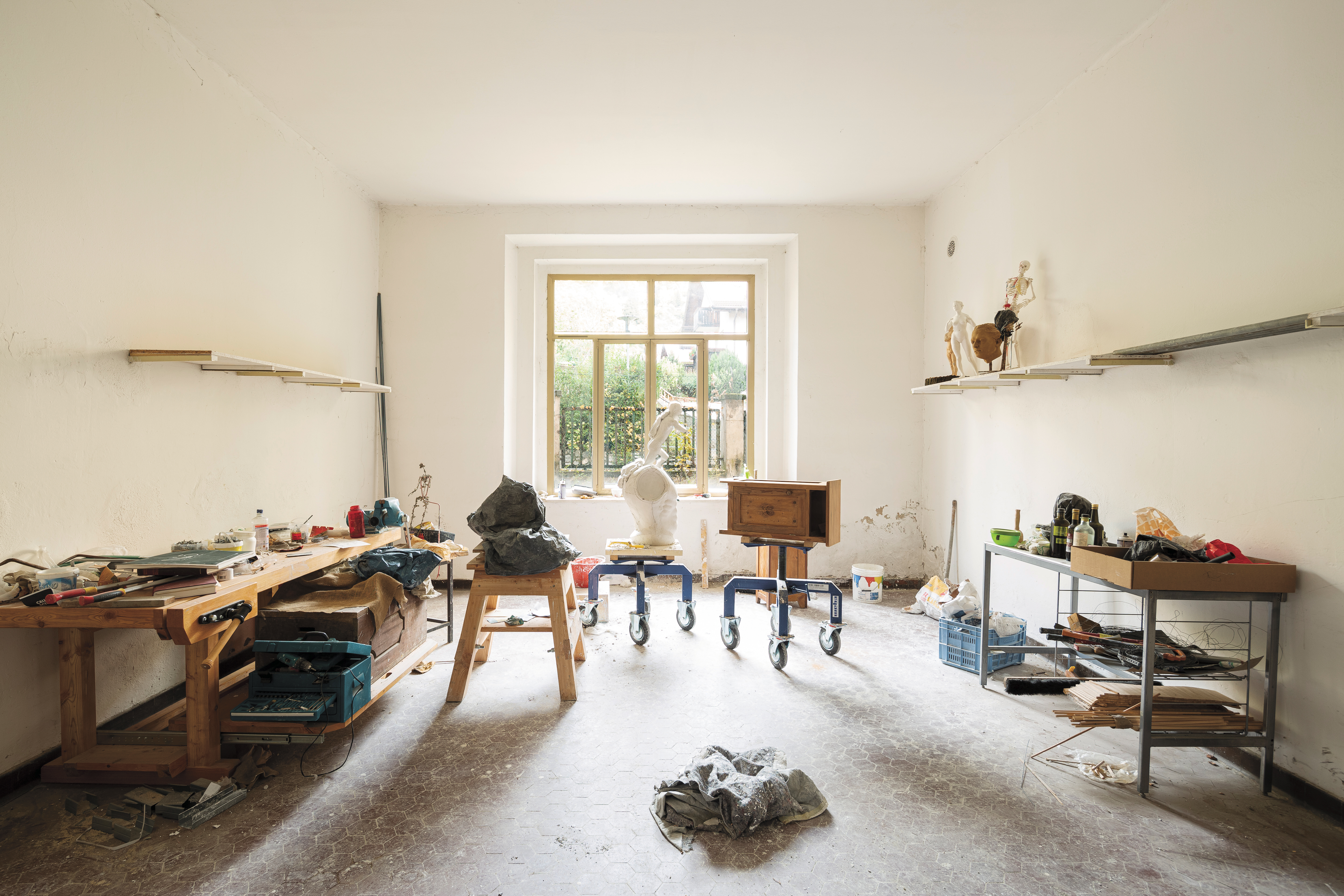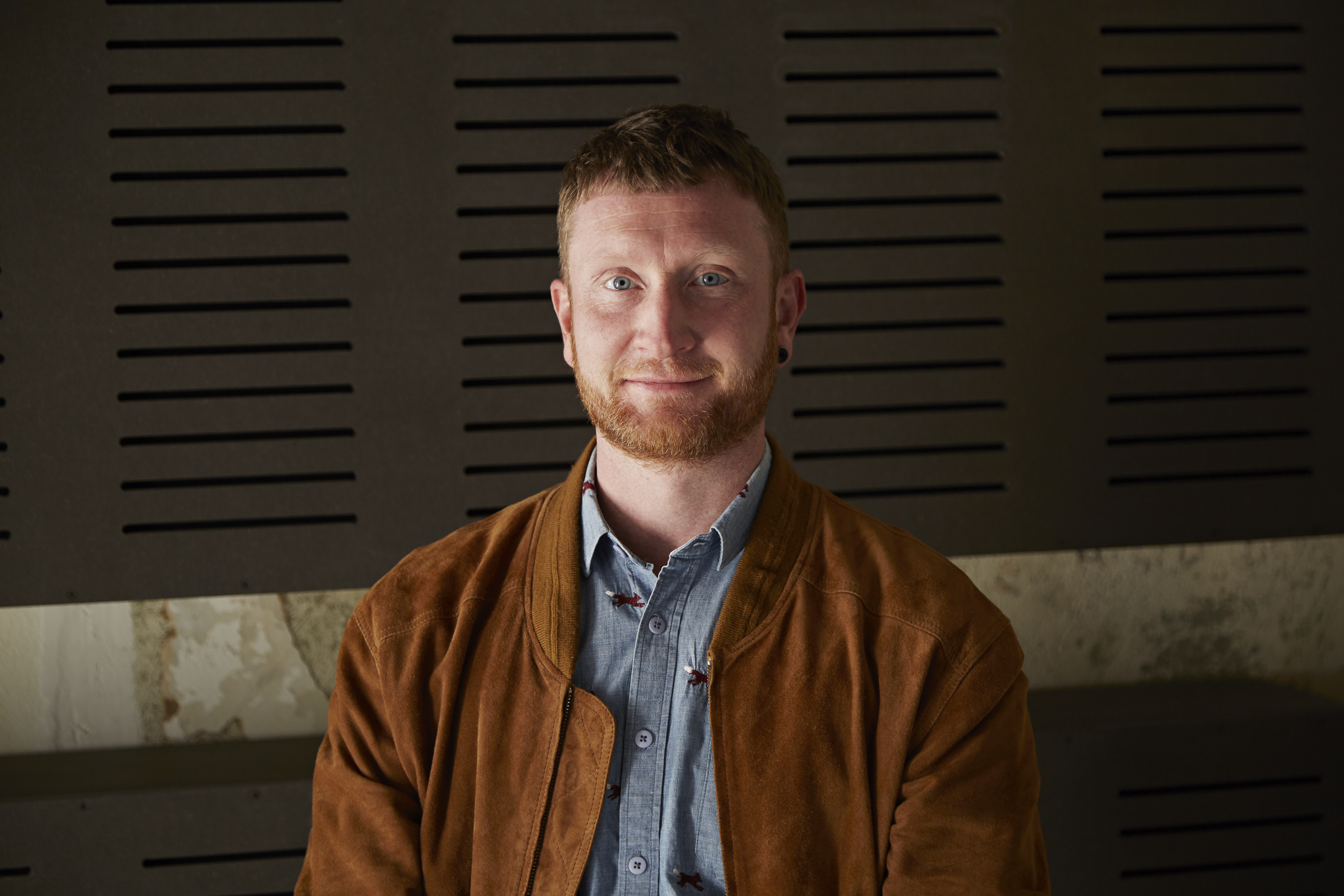A space for exchange, development and inspiration. BASIS Vinschgau Venosta is a Social Activation Hub, providing guidance and motivation for experimentation, bringing together business, education, culture and social issues. The Social Activation Hub enables cross-sectoral, holistic communicative development in the valley and beyond. BASIS works at the interface between modern economics, informal education, contemporary culture and socio-cultural development.
What’s the story behind your hub?
H: We live in a small alpine village with no possibilities to find spaces for experimenting in a cultural economy, like in a shared urban space. There was a lack of imagination in the people, they are close-minded, we had to leave early in our life - as youngsters - to find opportunities or to create something for us. In 2015, I was a DJ in the subcultural scene. I came to know that there was a political will to develop a district here in the Drusus Kaserma and then I invited Katrin to join me to see what the potentials of this area are.
This was the winning key: political willingness and active citizenship that took the responsibility of making a change.
We knew that there was a need for diversification processes of the economy, so we could link the needs for cultural experimentation and of a respectful, tolerant, international mindset in this rural area, to the economic needs of companies, related to the brain-drain issue. So, we thought of building this hybrid hub that BASIS is now, with different modules of shared working spaces and event spaces - our venue is the only club in the South Tyrol area.The specialty in our case is that there were two main actors behind it: me as an active citizen and Katrin knowing the urban and rural situations, the grassroots potential of innovation. We went to the mayor and answered his needs, convincing him to support us. He was open and I was the one who stayed and did it, together with Katrin and the other people who joined step by step.
This was the winning key: political willingness and active citizenship that took the responsibility of making a change. The European regional development fund financed us as a team, so we could level it up to the municipality, the region, the state and the EU level. BASIS was the acronym of Business And Social Incubator Silandro, and we also worked on socio-ecological economy, social innovation processes, and intelligence proximity services.
K: The hub itself opened in 2019. Our first offer was that people could come and rent a desk, but we didn’t have the event space yet. Then there was the association behind the project from the European level, from the private to the public.
The New European Bauhaus is something that we have been already doing here.
H: We did not just serve market needs. We needed to build a new kind of mindset and a way of distributing public space intelligently. This was our critical thinking, because we didn’t know there were that many people asking for a coworking space, but we knew we personally needed it for exchange and inspiration. The technical advantage we had was paying 180€ a month to have water, electricity, cleaning etc. It was the first step towards an ecosystem as a coworking space. Especially in rural areas, it’s much more difficult to do this because you don’t have that many people aggregating with this mindset.
We are still the non-dominant culture here. We are acting like a 4th sector prototype, balancing between private, public and research development needs. This is very important as we are in a valley where there is a lot of potential but a lot is missing. We have many high schools, good infrastructure, and a hospital, but we lack alternatives to adult education, universities, research and development in the companies and we are dominated by this monocultural industrial agriculture. The diversification of the economy was missing. In the research development, we check what is here and what is missing and we focus on two points where the valley has competences: agriculture/culinary product transformation and the creative field.
What are the main features of the area where you are located?
H: The main economy here is agriculture and food - apples here are the most precious ones in the world. Then we have the white marble, which is also world-wide famous. We have an old Roman street that crosses our valley. Back in the days, this was a rich region with many castles and cultural heritage. The South-North route switched, so this territory was not important anymore. We still have a lot of cultural heritage, which represents a potential. Cultural tourism is very strong in the valley. Agriculture and culinary tourism is also very strong, with a fusion of Italian/Austrian cuisine. We are in the south side of the Alps with a lot of sun, but we also have a lot of water and we produce electricity for the rest of the country. During the second World War, Mussolini raised a wall here, the Vallo Alpino, so this was always a border region with a lot of cultural transformations. There are a lot of historical emotional roots in the local people. We don’t have many factories but we are good in wood production, handcrafts, visual arts, and music. The New European Bauhaus is something that we have been already doing here.
What did you hub manage to (re)build in your territory?
H: We are an active place-shaker where people are wondering “what are they doing?”, “why is that needed?”. This is happening in the whole region, we are an unprecedented bottom-up and institutional initiative. We are building a strong net with institutions, companies and the local community, who can use BASIS space for themselves or for others.
People are hearing things happening, we got their attention.
K: We are a disrupting element in the whole region of South Tyrol. In the reuse of this fascist premise, there are many implications and conflicts coming up. We bring up polemical themes, like feminism, that sound surprising to conservative people here. But it’s interesting to have this feedback. In autumn, there was a building demolished here and it was a big deal for all the locals because we often talk about public spaces, fascism and who uses these free spaces. Until now, it was just abandoned but now it has become precious. People are hearing things happening, we got their attention.
Where do your customers and audience come from?
H: The people renting the desks are locals, from 15-20 km around here. They have to travel to get here, but it’s normal in this region. There are also temporary renters who come from very far. People are interested and we anticipated this urban/rural shift. People from the cities want the quality of the rural. It’s something that we can give an answer to thanks to our residencies. A quality rural context makes you work better and faster, but we still keep a hub with an urban touch. We complement different realities.
How do you envision the next steps for your hub?
H: We want to be more active in the ECHN network, having a staff member responsible for this relationship. The international relationships for us are very important as they make us stronger and they inspire us. Locally, after these years of work behind the scenes and of place-making, we want to develop and professionalise our offers, especially the incubation part of our innovation services. We try to focus on social and ecological innovation, not just this superficial startup kind of work, which is not interesting to us. We need a right mindset that links to social and environmental questions. We strengthened our relationships locally, nationally and internationally.
K: Now we need to get established and not just be criticised by the sceptical locals. We need to care for the community and to balance the more technical aspect of the hub.
 Spotlight Practice 1: Shared Ownership of the Event Venue
Spotlight Practice 1: Shared Ownership of the Event Venue
We run our event venue with our own program but we also give space to other actors. The advantage of the rural is that there are not many people, so we can invite other actors to contribute. We run the space for 50% and we give the other 50% to other privates, institutions, corporations etc. Rents have different prices depending on the size of the event. It’s a hybrid space with a unique social selling proposition: the venue is multifunctional (events + recording studio), you have young kids playing music, as well as elderly people playing cards or corporate people doing team building activities or conferences.
Spotlight Practice 2: Do it yourself do it together
We have a building in our premises that is not renovated. We managed to get a temporary use of it. We use it as a coworking studio for arts and crafts, not for desk jobs. Usually, artists and craftsmen can access only big rooms that cost too much. Here, we have small studios 40 square metres with an affordable rent of 200€. We fill a gap in the market. There is no public or private investment, so the model is “do it yourself, do it together” of making and inhabiting the space. People built and separated their spaces and they invested their own money on their own initiative. We gave them a perspective and they have the agency to shape the space and self-organise. There might be some friction among members, but there are also people who need a framework to work in. Too much freedom is very difficult to handle.
Spotlight Practice 3: Multi Pillar Model
Our model defines us as a creative hub and an innovation hub working on project management and innovation services for rural areas, which is an income stream. We give the studios and desks to professionals, linking theory and practise (desk jobs and artistic practices). The event venue allows niche and subculture activities to happen. We also get public money, which in this way gets redistributed in all these activities for the territory.

 Hannes Götsch and Katrin Gruber are respectively the Founder and the President of BASIS, a creative hub in the Vinschgau Venosta region of South Tyrol. BASIS is a “place-shaker” that keeps challenging local scepticism by offering a hybrid space and services to local citizens, creative professionals and companies.
Hannes Götsch and Katrin Gruber are respectively the Founder and the President of BASIS, a creative hub in the Vinschgau Venosta region of South Tyrol. BASIS is a “place-shaker” that keeps challenging local scepticism by offering a hybrid space and services to local citizens, creative professionals and companies.